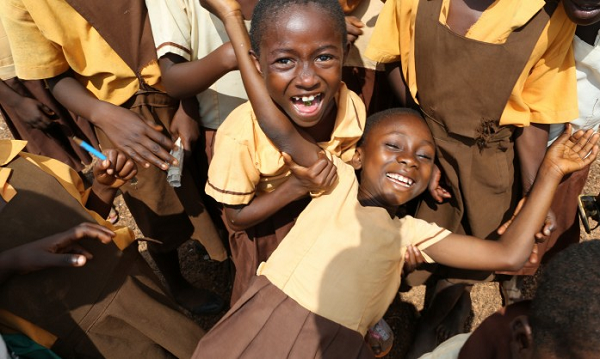
International Day of the Girl Child commemorated
Some stakeholders in girl-child education have organised different programmes to mark this year’s International Day of the Girl-Child.
In the Adentan municipality in the Greater Accra Region, hundreds of girls from the WASS Experimental Basic School went on a procession through some principal streets in the municipality to draw public attention to the girl-child.
Advertisement
In the Tamale metropolis, a debate on girls’ empowerment was held to mark the day.
Both events took place last Friday.
The International Day of the Girl-Child fell yesterday, October 11, and was commemorated all over the world in recognition of girls’ rights and the unique challenges they face around the world.
The theme for this year’s commemoration was: “My voice, our equal future”.
Debate
In the debate in Tamale, three female students of the Ridge Junior High School (JHS) spoke for the motion: "Empowerment of girls: A catalyst for Ghana's sustainable development", while another set of three girls from the Choggu Demonstration JHS in the Sagnarigu municipality spoke against it.
At the end of the contest, Ridge JHS won the debate and will represent the Northern Region at a national symposium and debate to be held in Accra today to climax the national commemoration of the day.
The two debate teams were presented with prizes for exhibiting in-depth knowledge of issues affecting girls’ empowerment and how they could be addressed.
The debate was organised by the Department of Gender in the Northern Region, in partnership with NORSAAC, a civil society organisation, and the Ghana Education Service (GES), with support from the United Nations Fund for Population Activities (UNFPA) and other development partners.
Concerted efforts
Speaking at the debate forum, the acting Northern Regional Director of Gender, Ms Bushira Alhassan, called for concerted efforts from all segments of society to help eliminate all forms of harmful cultural practices, such as child marriage, child discrimination, teenage pregnancy and sexual and gender-based violence, that continued to hinder adolescent girls from growing to attain their full potential in life.
She said as the world marked International Day of the Girl-Child, "let us seize the opportunity to be inspired by what adolescent girls see as the change they want, the solutions — big and small — they are leading and demanding across the globe".
She further called for the deliberate involvement of parents, teachers and other stakeholders in advocacy for sexual reproductive health rights, access to education and free expression at the local, regional and national levels.
The Girls Education Officer with the Northern Regional Directorate of Education, Ms Linda Amoah, who was the Head of the judges for the debate, commended the debaters and said girls’ education in the region had seen significant improvement.
The Northern Regional Coordinator of the Domestic Violence and Victims Support Unit of the Ghana Police Service, Deputy Superintendent of Police (DSP) Mr Emmanuel Horlortu, advised girls to take responsibility for their safety and avoid following friends to places where their safety was not guaranteed in order to avoid being assaulted sexually.
Procession
The hour-long procession through the streets of Adentan was organised by the Girls’ Education Network (GEN), a group of civil society organisations (CSOs), government institutions and international partners, including Plan International and Camfed, a pan-African movement on girls’ education.
After the procession, the Convener of GEN, Mrs Benedicta Tenni Seidu, explained that the commemorative event took place on Friday because the celebration day itself fell on Sunday when students might be engaged with their families and also involved in religious activities.
“We decided to celebrate ours on Friday, so that everybody can have the time to go to church and do other businesses on Sunday,” she said.
Mrs Seidu, who is also the Director of the Girls Education Unit at the GES, said GEN chose Adentan Sakora for the commemoration because it had realised the need to support the education of every child in the community.
“We have noticed that a lot of girls here stay with people who are not their own parents, and so sometimes the performance of house chores and the handling they encounter at home affect their schooling,” she added.
Background
The UN chose October 11, 2012 as the International Day of the Girl-Child, for which reason October 11, every year is a day in support of opportunities for girls and an occasion for enhancing awareness of the gender inequality girls face worldwide based on their gender.
Inequalities girls face include lack of access to education, nutrition, legal rights, medical care and discrimination and violence and forced child marriages.




